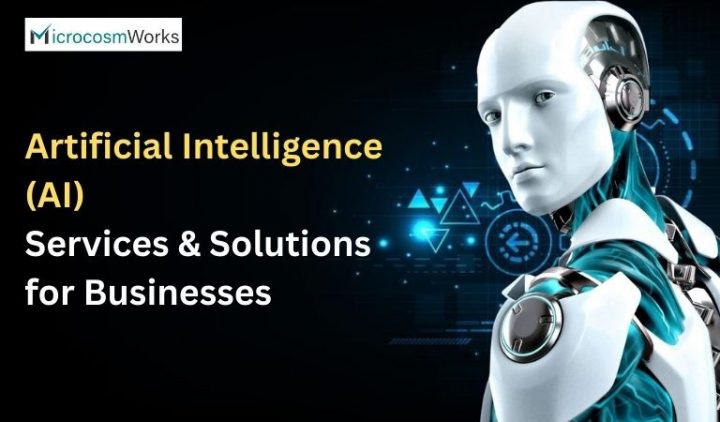Technology is evolving at a rapid pace, with artificial intelligence (AI) at the forefront of this transformation. From customer care to process automation, from data insights to content generation, AI is helping businesses improve efficiency and create new growth opportunities. The good news is that organizations no longer need huge in-house development teams to take advantage of these tools. With cloud platforms and expert consulting services, companies of all sizes can access powerful AI capabilities quickly and cost-effectively.
AI services encompass a broad range of areas, including pre-built machine learning models, custom development, and consulting. Let’s take a closer look at the most common types of services available today and the value they bring to organizations.
Key Types of AI Services
1. Pre-Trained Models & Platforms
Major cloud providers such as Microsoft Azure, Oracle Cloud, and HPE offer AI platforms with ready-to-use machine learning models. Instead of building complex models from scratch, developers can integrate these pre-trained tools into applications with ease. This helps businesses adopt AI faster, whether for analyzing customer behavior, forecasting sales, or automating daily operations.
2. Generative AI
Generative AI has become one of the most well-liked innovations in recent years. These solutions are capable of creating new content — from text and images to design ideas and even computer code. Businesses use generative AI for tasks like writing product descriptions, creating marketing material, or summarizing large reports. The result is higher productivity and more creative output in less time.
3. Machine Learning Consulting
Not every organization has the expertise to design and deploy custom AI systems on its own. That’s where machine learning consulting comes in. Consultants work with businesses to identify opportunities, plan strategies, and implement tailored AI solutions. This ensures that companies adopt AI in ways that directly support their goals and workflows.
4. Data Services
AI is only as strong as its fundamental information. AI-driven data services help organizations collect, process, and analyze large volumes of information. With these services, companies can predict trends, personalize customer interactions, and make better decisions. For example, an e-commerce business can recommend products based on purchase history, while healthcare providers can use data to enhance patient care.
5. AI Agent Development
Chatbots and AI agents are transforming customer support. These virtual assistants can handle routine questions, guide users through processes, and automate repetitive tasks — all while providing consistent, 24/7 service. This not only improves customer experience but also reduces the workload on human employees.
6. Computer Vision
A subfield of artificial intelligence called computer vision enables machines to comprehend pictures and videos. It’s widely used in industries such as manufacturing (for defect detection), security (for facial recognition), and online platforms (for content moderation). By automating visual tasks, businesses can improve accuracy and reduce operational costs.
7. Natural Language Processing (NLP)
Computers can now comprehend and produce human language thanks to NLP. With AI-powered NLP tools, businesses can analyze customer feedback, perform sentiment analysis, translate text, or convert speech into written form. This makes communication smoother, faster, and more effective across global markets.
Benefits of AI Services
Increased Productivity
AI automates monotonous jobs, allowing workers to concentrate on high-value, creative work. This boosts efficiency across departments, from customer support to operations.
Enhanced Customer Experiences
By personalizing interactions and providing faster responses, AI creates stronger connections with customers. Chatbots, recommendation systems, and predictive services all contribute to more satisfying user experiences.
Smarter Decision-Making
AI enables leaders to make informed decisions based on predictive insights. Whether it’s identifying risks, forecasting demand, or optimizing resources, AI turns data into actionable strategies.
Faster Development
Using pre-built AI models and cloud platforms, businesses can integrate advanced features into their applications much faster. This reduces the need for large development teams and shortens time-to-market.
Cost Efficiency
Cloud-based AI services lower the cost of adoption. Instead of building expensive infrastructure, businesses can pay only for the services they need, making AI more accessible and scalable.
Real-World Applications
AI services are already driving transformation across industries:
- Retail: Personalized product recommendations, AI-powered chatbots for customer service, and demand forecasting.
- Healthcare: Diagnostic tools, patient data analysis, appointment scheduling assistants, and image-based disease detection.
- Finance: Fraud detection, credit risk assessment, and tailored financial advice.
- Manufacturing: Predictive maintenance, defect detection using computer vision, and process optimization.
- Education: Automated grading systems, AI instructors, and personalized learning platforms.
Why Businesses Should Invest in AI Services
The speed at which AI is advancing means that companies that ignore it risk falling behind. Embracing AI doesn’t have to be overwhelming. Businesses can start small, experimenting with one or two services, and then scale as they see results.
AI has definite benefits for increasing productivity, improving customer satisfaction, or cutting expenses. With options ranging from ready-made solutions to custom-built platforms, organizations of every size and industry can adopt AI at a level that works for them.
Final Thoughts
Artificial intelligence is no longer a futuristic concept. It has arrived and is already transforming how companies run. From smarter decision-making to personalized customer experiences, AI services are creating new possibilities across industries.
For companies ready to leap, AI isn’t just a tool — it’s a pathway to growth, innovation, and long-term success.




